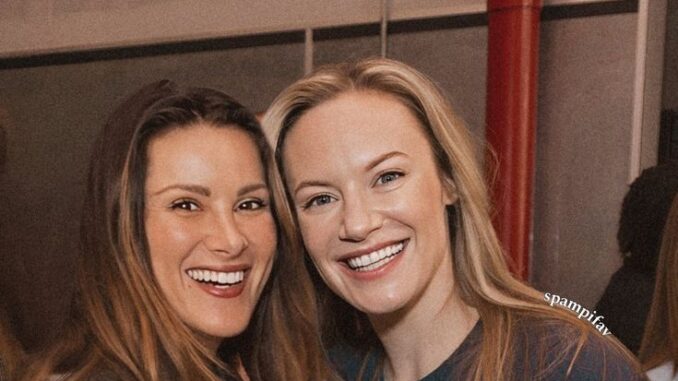
When Station 19 first premiered in March 2018, I was both hopeful and intrigued by the prospect of a new drama centered around the lives of firefighters in Seattle, especially considering its connection to the established Grey’s Anatomy universe. The idea of seeing firefighters navigating high-stakes emergencies and complicated personal lives seemed like a natural extension of the medical drama that had captivated audiences for so long. The show’s premise introduced Andy Herrera (Jaina Lee Ortiz), a young, passionate firefighter eager to follow in the footsteps of her late father, Pruitt Herrera (Miguel Sandoval), and eventually lead the firehouse. For a moment, it seemed like Station 19 had all the makings of a compelling, action-packed series with heart and depth. But as the show progressed, it became clear that while it had its share of engaging moments, it struggled to find its own footing and ultimately never matched the cultural impact of its parent series.
The main issue with Station 19 was its persistent entanglement with Grey’s Anatomy. While it was understandable that the show would have crossovers, given its shared setting and interconnected characters, Station 19 often leaned too heavily on these connections to sustain its plotlines. From the very beginning, we saw Grey’s characters like Ben Warren (Jason George) transitioning from a surgeon to a firefighter, with his marriage to Dr. Miranda Bailey (Chandra Wilson) serving as a constant reminder of the Grey’s world. The frequent crossovers and shared storylines meant that Station 19 always felt like an extension of Grey’s rather than an independent show with its own voice. This reliance on familiar Grey’s Anatomy characters and storylines may have kept some viewers engaged, but for others, it prevented Station 19 from carving out its own unique identity.
The structure of the show also mirrored many of Grey’s signature tropes, such as love triangles, personal drama, and emotional cliffhangers, but these elements often lacked the same emotional weight. In the early seasons, Andy found herself caught in a love triangle with firefighter Jack (Grey Damon) and her best friend Ryan (Alberto Frezza), but the dynamic never felt as compelling as the on-again, off-again romances Grey’s was known for. Ryan’s death early on in the show’s third season seemed like a bold narrative choice, but it left a gap in the emotional core of the series that was never fully filled. Andy’s subsequent relationships, including a brief marriage to Robert (Boris Kodjoe), never seemed to have the same spark or complexity as the iconic couples of Grey’s Anatomy. Even when the show introduced new characters and relationships, like Maya (Danielle Savre) and Carina (Stefania Spampinato), or Travis (Jay Hayden) navigating life after the death of his husband, the romances lacked the emotional intensity or resonance that had defined Grey’s relationships for over a decade.
Another problem with Station 19 was its inability to fully explore and define its central theme: the lives of firefighters. Although there were occasional glimpses of real danger—fires, medical emergencies, and life-or-death situations—the action never quite lived up to the intensity expected of a show about first responders. More often than not, Station 19 became bogged down in the characters’ personal issues and relationship drama, with the action scenes feeling like mere backdrops to the central emotional conflicts. The narrative often felt repetitive, with characters facing the same dilemmas over and over again, without much growth or change. Grey’s had the advantage of balancing personal drama with high-stakes medical cases, but Station 19 struggled to find the right balance, often sacrificing emotional depth for melodrama.
Despite its shortcomings, Station 19 did manage to tackle some important social issues, including LGBTQ+ rights, mental health, and racial injustice, but the way these topics were incorporated into the storylines often felt too forced and heavy-handed. Grey’s Anatomy, with its focus on the medical field, had more freedom to address such issues in a way that felt natural and organic to the show. Station 19 on the other hand, often came off as preachy, trying too hard to make a statement without giving the characters enough room to process and engage with the issues in meaningful ways. When the show did address topical matters, such as the struggles of first responders in dealing with trauma or the social stigma around mental health, it was clear that the writers were trying to incorporate depth, but it often felt superficial.
By the time the show reached its seventh and final season, it had become clear that Station 19 had failed to establish itself as more than just a Grey’s spin-off. The series finale, while offering a sense of closure, left the show feeling more like an afterthought. The final moments set up a potential spinoff focused on Vic (Barrett Doss) and Travis (Jay Hayden) expanding the Crisis One program, but the truth was, the show had never fully succeeded in distinguishing itself from its parent series. Even with its connections to Grey’s, there was a sense that Station 19 was never able to step out of the long shadow cast by its predecessor. Ultimately, while Station 19 had moments of entertainment, the show never fully lived up to its potential, and its legacy will likely remain intertwined with the more successful Grey’s Anatomy, rather than standing on its own as a standout series.
With the Grey’s Anatomy megaverse continuing to expand, it’s hard to say whether any future spinoffs will finally break free from its long-established grip. But as for Station 19, its seven-season run will likely be remembered as a show that had a lot of promise but never quite caught fire in the way it needed to.
